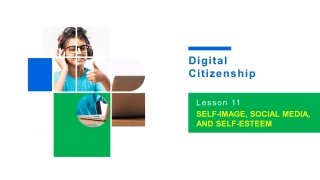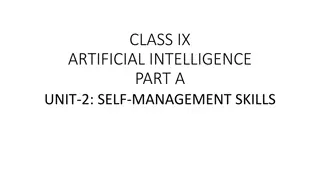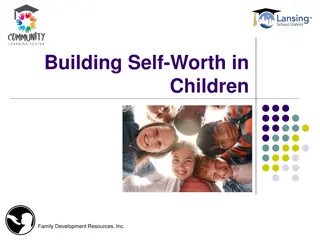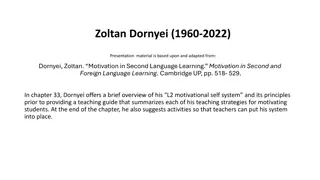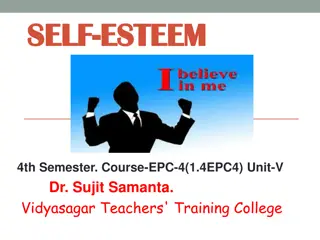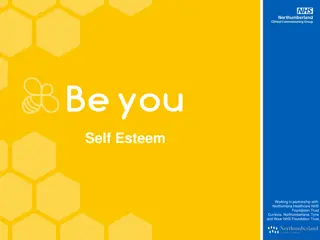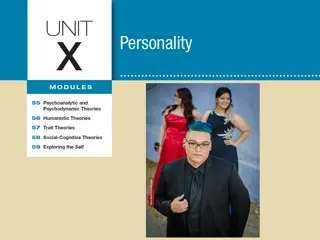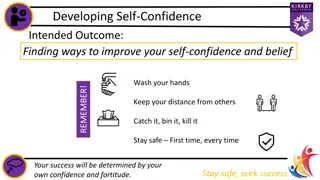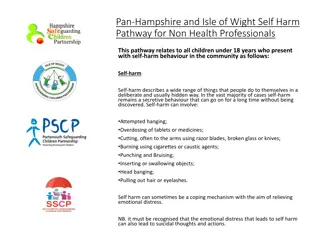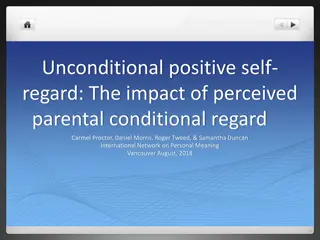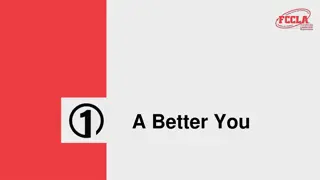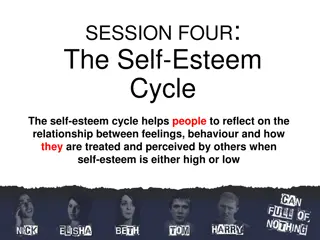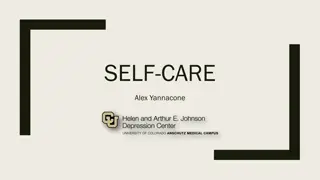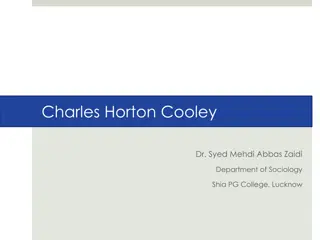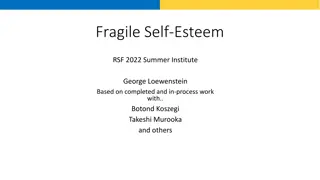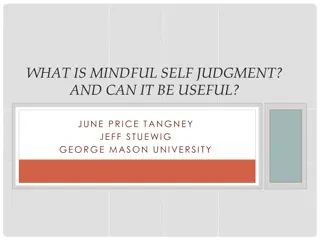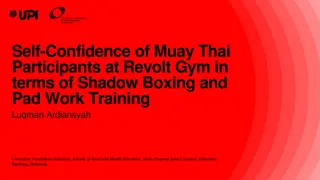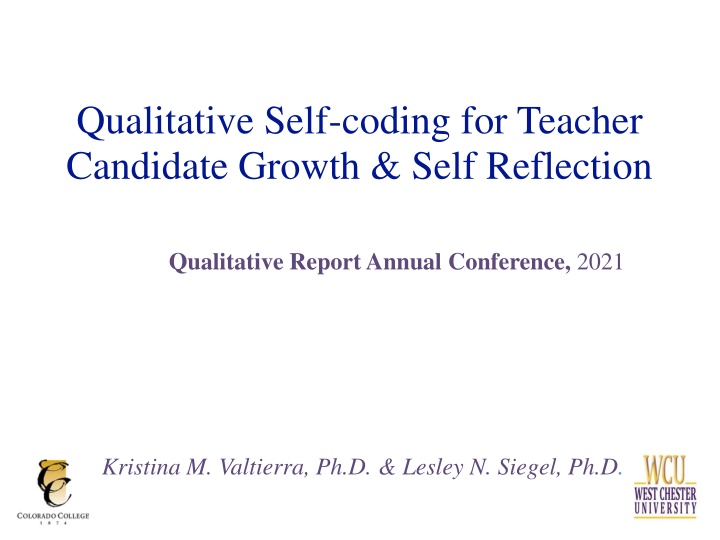
Empowering Teacher Candidates: Qualitative Self-Coding for Growth & Reflection
Explore how teacher candidates can develop through reflective journaling and qualitative self-coding. This research delves into promoting teacher identity, reflective practices, and inclusivity for CLDE learners, emphasizing the power of reflective writing as a research tool. Co-authored by Kristina M. Valtierra, Ph.D., and Lesley N. Siegel, Ph.D., this study sheds light on the impact of self-coding on teacher candidate growth.
Download Presentation

Please find below an Image/Link to download the presentation.
The content on the website is provided AS IS for your information and personal use only. It may not be sold, licensed, or shared on other websites without obtaining consent from the author. If you encounter any issues during the download, it is possible that the publisher has removed the file from their server.
You are allowed to download the files provided on this website for personal or commercial use, subject to the condition that they are used lawfully. All files are the property of their respective owners.
The content on the website is provided AS IS for your information and personal use only. It may not be sold, licensed, or shared on other websites without obtaining consent from the author.
E N D
Presentation Transcript
Qualitative Self-coding for Teacher Candidate Growth & Self Reflection Qualitative Report Annual Conference, 2021 Kristina M. Valtierra, Ph.D. & Lesley N. Siegel, Ph.D.
Co-Authors & Research Partners Kristina Valtierra, Ph.D. Assistant Professor & Associate Chair Colorado College Education Department kvaltierra@coloradocollege.edu Lesley Siegel, Ph.D. Assistant Professor West Chester University of PA College of Education & Social Work lsiegel@wcupa.edu Collaborations approach qualitative research from a social justice lens exploring the use of qualitative methods to promote teacher identity development, reflective practices, and inclusive practices for CLDE learners. Researching and writing together since 2015.
Research Topic Reflective journaling is used as a tool for teacher candidates to self-assess their evolving teacher dispositions as well as the evolution of their skills in the field (Anderson & Freiberg, 1995; Schussler, Stooksberry, & Bercaw, 2010) Reflective journals are often turned into data sets for educational research purposes(Clar , 2015; Cohen-Sayag & Fischel, 2012; LaBelle & Belknap, 2016; Roskos, Vukelich & Risko, 2001) . The teacher candidates reflections then cross an invisible border in an academic hierarchy, the powerful data generated by their reflective writing becoming a launching pad for the researcher s benefit. What happens when teacher candidates are taught qualitative self- codingof their reflective journals?
Background/Literature Teacher Dispositions Teacher Reflection (Borko et al., 2007; Fonseca-Chacana, 2019; Krebs & Torres, 2011) (Clar , 2015; LaBelle & Belknap, 2016; Rossini & Thorsen, 2019)
Conceptual Framework Actions Reflection on Action (Sch n, 1983) Feelings Thoughts Interpretation mediated through dispositions
Context Reconceptualization of 2 prior studies: Valtierra, K. M. & Siegel, L. (2020). Qualitative self-coding as reflection: Empowering teacher candidates with the tools of the researcher. Reflective Practice: International and Multidisciplinary Perspectives, 21(3) 415-428. Siegel, L. & Valtierra, K. M. (2018). Self-coding: A tool for crossing the border from reflective educator to early researcher in Garbett, D. & A. Owens (Eds.). Pushing Boundaries and Crossing Borders: Self-study as a Means for Knowing Pedagogy (149-156). Herstmonceaux, UK: S- STEP. Single Case Study Participants: 8 5th year MAT Teacher Candidates 2 Male, 2 Black, 2 Latinx; 3 Elementary, 5 2ndary SS, ELA or Math Fall Semester Reflection Notebooks Covid-19 AR to Self Study
Self-coding Process RQ: What critical insights do MATs gain about their beliefs & values through the process of self-coding semester long reflection journals?
Analysis Data Source Teacher candidate self-generated codes Analysis Process Step 1: Independent thematic analysis of teacher candidate self- generated codes in cycle 1 by two researchers Step 2: Collaborative comparison and consensus building into themes Step 3: Collaborative frequency analysis of salient themes Step 4: Repeated above process for teacher candidate self-generated codes in cycle 2. Teachercandidate reflections on professional teaching dispositions Step 1: Initial independent inductive thematic coding of teacher candidate coding cycle 1 by two researchers Step 2: Comparison, data reduction and consensus building Step 3: Second cycle independent thematic coding by both researchers Step 4: Comparison and consensus building Step 5: Repeated above process for teacher candidate coding cycle 2. Step 6: Collaborative cross-case analysis
Findings In order to be an inclusive educator, TCs believe they should be: 1. Comfortably vulnerable Being vulnerable is not a weakness, but a sign that I am not guarded and always open to growth and change. 2. Co-constructors Inclusive pedagogy for me also relies on students and I being co-constructers of not just knowledge, but also of our classroom community. 3. Critically compassionate To build relationships across difference requires deep reflective practice, critical awareness of my positionality and being present to listen, understand and act out of compassion.
Discussion Parallels prior findings that teaching self-coding effectively guides participants to: critically examine their thinking see their dispositions The process fosters reflexivity Applicable across contexts to support learner dispositions and reflexivity.

